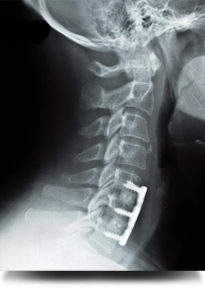What if I told you that 7 out of 10 of your patients who had an anterior cervical disc fusion (ACDF) had occasional or daily dizziness and/or unsteadiness 10 years later!?
One of the biggest arguments against Dizziness from Cervical Origin (i.e. Cervicogenic Dizziness) is a consistent lack of agreement between professionals of the neck as a driver of symptoms. Generally speaking, manual based professionals such as acupuncturists, chiropractors and physical therapist hoot “yes” while ENTs and otoneurologists yelp “no”. This exact topic was one of our most common posts and can be found here.
Nevertheless, we are seeing more and more evidence come out in the last few years in the literature showing correlations between neck disorders and balance/dizziness. The kicker — this work is done by surgeons. We wrote on this exact topic a few months ago too and can be found here.
In early 2019, Hermansen A et al performed a cross-sectional study with 10–13-year follow-up using self-reported data on dizziness and balance problems in patients who previously received an anterior cervical fusion (ACDF). Here is what the authors found:
Highlights
- Pain was significantly associated with dizziness, but not balance.
- Health-related quality of life correlated to symptoms.
- Seventy-two percent experienced occasional or daily symptoms of unsteadiness and/or dizziness.
- There was a moderate correlation with dizziness during movement and balance problems.
- The patients’ symptoms of dizziness or balance problems had impact on daily life according to the Dizziness Handicap Inventory.
- Twenty-one (31%) individuals had moderate, and six (9%) had severe disability.
- The quality of dizziness was described by 12 individuals as non-rotatory, a vague feeling of discomfort, a sensation of lightheadedness, or imbalance/postural unsteadiness.
Neck pain, reduced neck-muscle endurance, and reduced neck range of motion (mobility) are impairments seen in patients after ACDF. Therefore, it is not surprising to see these type of results. What is surprising, at least in the fact that I have never seen it “on paper”, is the percentage (72%) of patients still experiencing these type of symptoms a decade later!
Other Take-aways
- These patients had surgery (ACDF) for cervical radiculopathy and not for any dizziness symptoms. I wonder how many had symptoms prior to surgery.
- This data also confirms that these type of symptoms can have an origin from the cervical spine further placing proof that this area can be at fault.
If you are a currently rehabilitating patients s/p ACDF or other cervical surgery, it is pertinent to continue to address pain but also examine balance and sensorimotor disturbances. I recommend we, as rehabilitation professionals, address these impairments early in the rehabilitation stage and even have an open conversation with the patient about potential future symptoms of unsteadiness/dizziness. It could definitely lead to the patient returning to you for treatment in the future and if treated appropriately, improve overall quality of life.
You can learn more about the screening and treatment process of Cervicogenic Dizzinesss through Integrative Clinical Concepts, where the authors (husband–a manual therapist a wife—a vestibular specialist), teach a very unique course combining both the theory and practice of vestibular and manual principles in their 2-day course. Pertinent to this blog post, the 2nd day includes the “Physio Blend”, a multi-faceted physiotherapist approach to the management of Cervicogenic Dizziness, which includes treatments of the articular and non-articular system of manual therapy and the most updated sensorimotor exercise regimen.
If you would like to host a course for your staff (either a vestibular, neuro, sports or ortho clinic), please do not hesitate to contact me at harrisonvaughanpt@gmail.com for more information.
Authors
Harrison N. Vaughan, PT, DPT, OCS, Dip. Osteopracic, FAAOMPT
Instructor: Cervicogenic Dizziness for Integrative Clinical Concepts
Danielle N. Vaughan, PT, DPT, Vestibular Specialist
Instructor: Cervicogenic Dizziness for Integrative Clinical Concepts














Post a Comment
Post a Comment